From September 5th to 9th, 2022, a series of orientations for JI’s cohort 2022 students were carried out to help them adapt to study and research at JI and set reasonable goals. Various topics were covered including overall introduction of the institute, the curriculum system, as well as research methods in the relevant fields of computer science and engineering.
Ⅰ. JI’s general information, curriculum arrangement and regulations
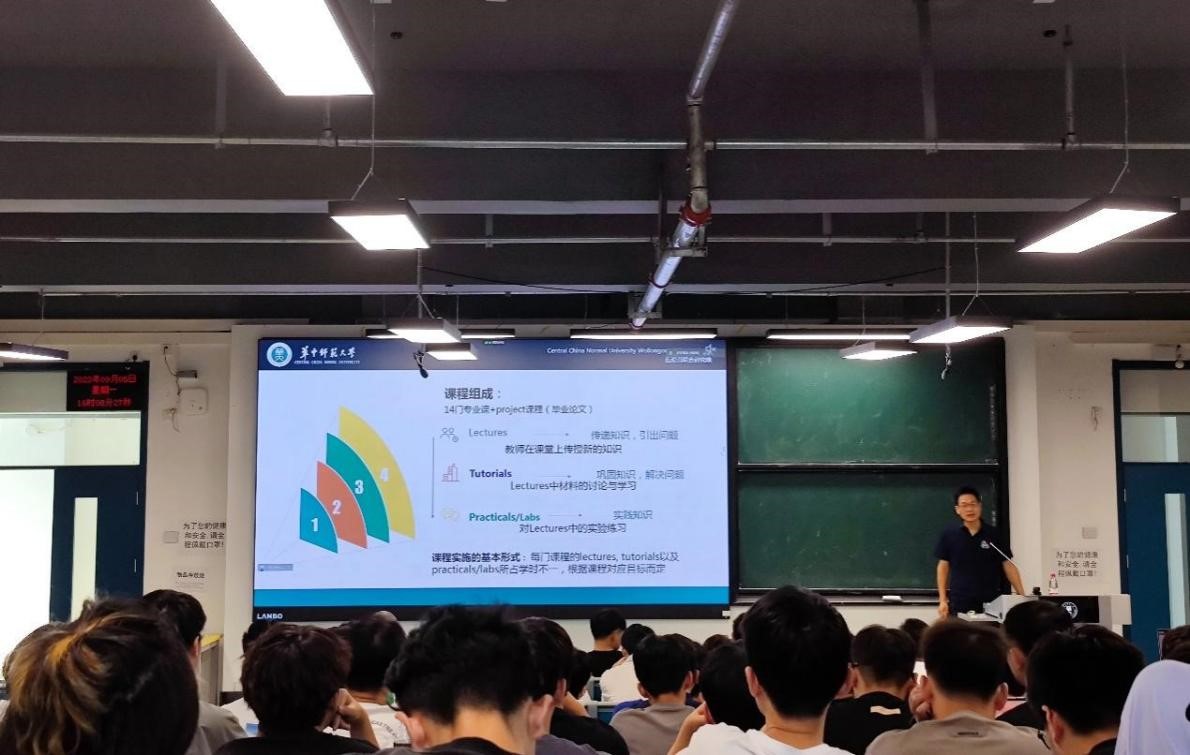
Prof. Xinguo Yu, Dean of the JI, introduced the general information of the Joint Institute in details with the topic of “Successful Start of JI's Study and Research”. He described the “14+1” curriculum arrangement, the characteristics of postgraduate studies and the effective methods of scientific research. He also proposed four principles of “Respect for teachers; Unity and fraternity; Respect for academics; Love f0r life” as an expectation towards JI’s students.
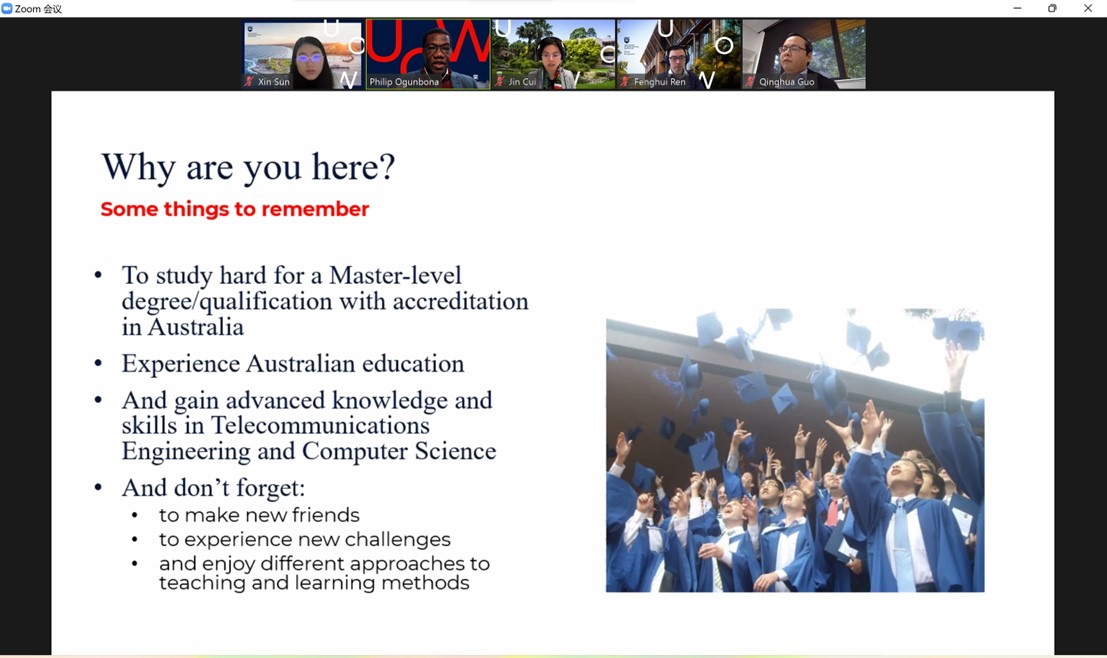
A series of lectures were given online to the new students by the representatives from the University of Wollongong (UOW), including Senior Deputy Vice Chancellor and Senior Vice-President (Innovation, Enterprise and External Relations) of the UOW Prof. Alex Frino, Associate Dean of the Faculty of Engineering and Information Sciences (International Affairs) Prof. Philip O. Ogunbona, Academic Program Director of Computer Science Dr. Fenghui Ren, and Academic Program Director of Telecommunications Engineering Associate Professor Qinghua Guo. At the beginning of the lectures, Prof. Frino delivered a welcome speech and encouraged the students to improve themselves to be innovative talents of science and technology. Prof. Ogunbona gave a brief introduction of Wollongong City and the UOW. He also shared his experience on how to better adapt to the postgraduate life. Dr. Ren and A/Prof. Guo introduced the subjects of Computer Science and Telecommunications in details and described the relevant UOW policies.
In the Q&A session, the students consulted with the UOW faculty members on various issues, such as studying and living conditions at the University of Wollongong and UOW degree certification. At the end of the lecture, the UOW faculty members sent their best wishes to the students, wishing that they would make new friends, gain new knowledge and experience in the coming two years.
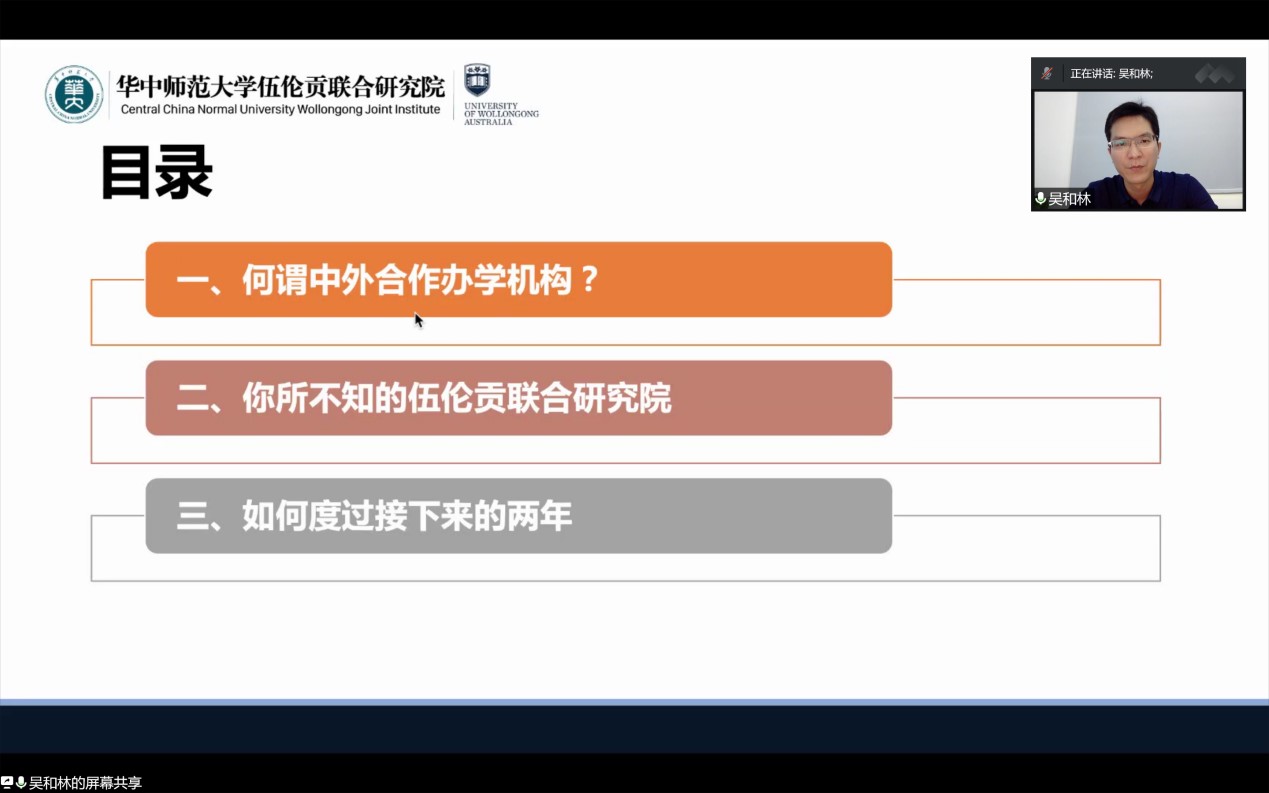
Dr. Helin Wu, Deputy Dean of JI, introduced the characteristics of Sino-foreign cooperative education, the development of the institute and the teaching staff with the title of “LI DE LI YAN, WU WEN XI DONG” (Make achievements both in virtue and academia and to be inclusive). He pointed out that opportunities are reserved for those who are fully prepared, and he hoped that students would be well-grounded, empower themselves for the future and make valuable choices at important moments in their lives. At last, Dr. Helin Wu illustrated the importance of observing the world from different perspectives and having a positive attitude through two videos.
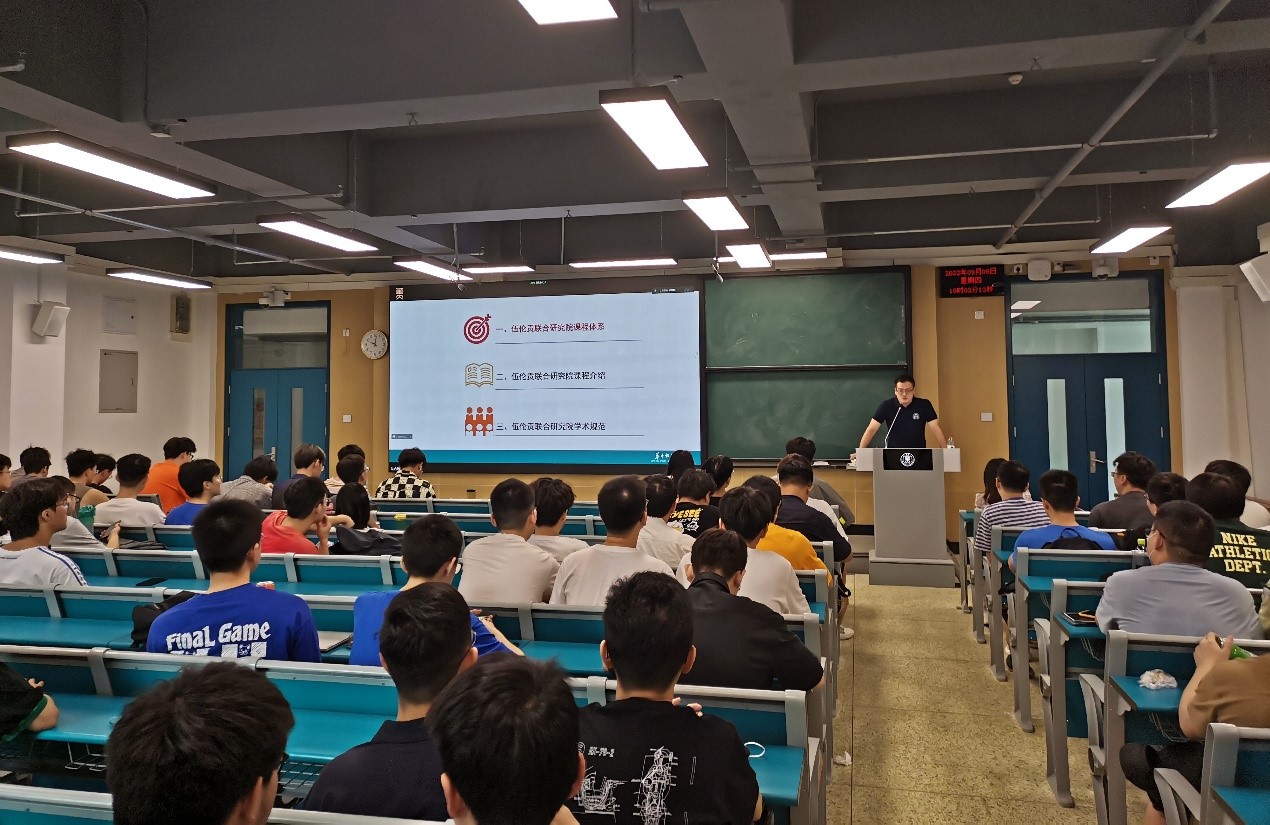
Associate Professor Lei Niu, local Academic Program Director of Computer Science, introduced the related regulations about curriculum system, graduation requirements and academic norms. Program Manager for Teaching Affairs Ms. Yang Yang briefly explained the process of the two-way selection of supervisors and the requirements of laboratory management.
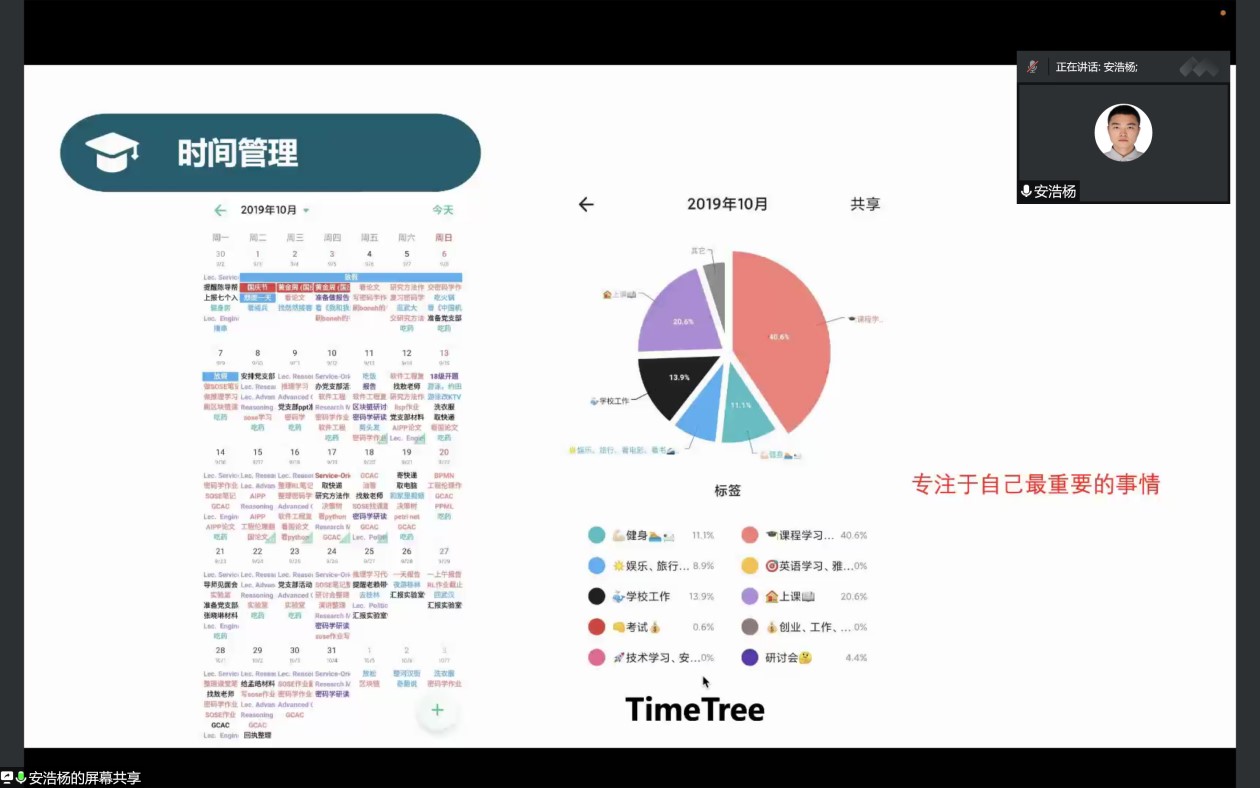
Mr. Haoyang An, an outstanding graduate of JI, shared his study and research experience in terms of coursework, research and time management. He also suggested that all students should cherish the short two-year study at JI.
Ⅱ. Professional academic guidance and frontier academic information.
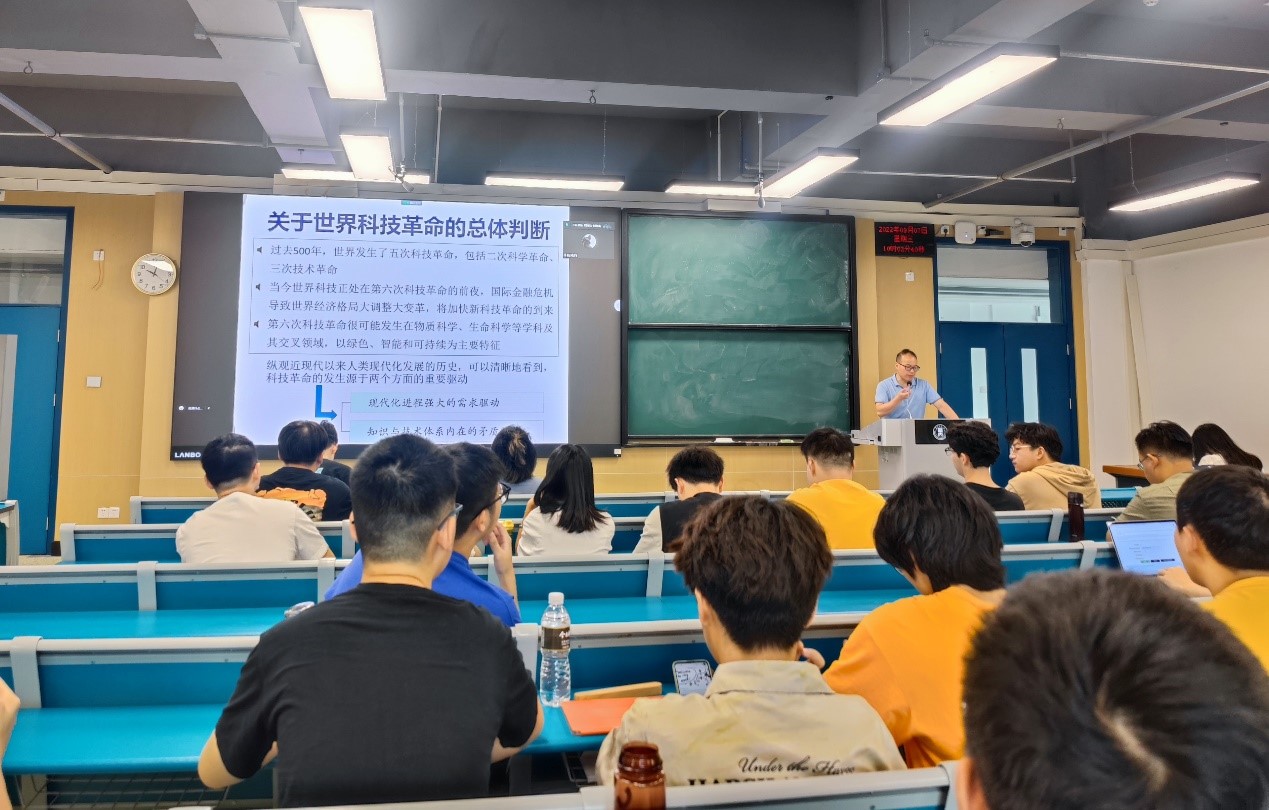
Prof. Guangyou Zhou introduced the history of computer science and its development trend, enhancing students’ understanding of the past and present of computers. He stated that the information era led by the fifth scientific and technological revolution is underway, so he hoped that students would rise to the challenge and seize the opportunity to contribute to the development of information technology.

Associate Professor Jiageng Chen introduced the history, research status and prospects of cryptography, and showed the charm of cryptography in a unique way. He also highlighted the current mainstream research directions of cryptography such as anti-quantum cryptography and lattice cryptography, to help students better understand cryptography as a well-developed discipline and to provide valuable reference for their future learning.
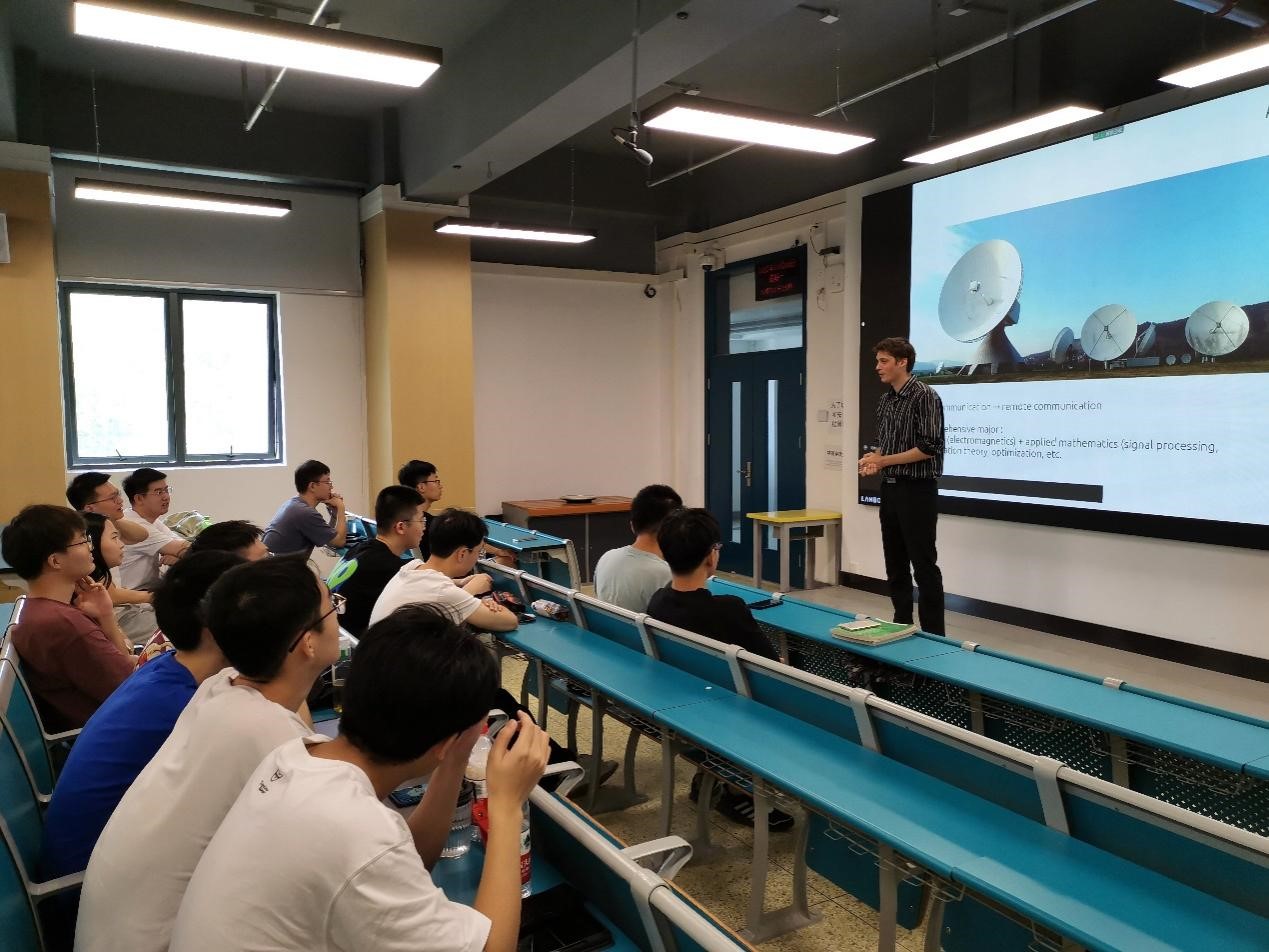
Prof. Yann Berquin, local Academic Program Director of Telecommunication Engineering, gave a professional lecture majoring in Telecommunication. He shared his own experience of studying and working in multiple countries and showed how to apply theoretical knowledge to engineering research, encouraging students to explore and use knowledge to solve practical problems. In the end, he also provided guidance on how to send emails in standard and authentic English.
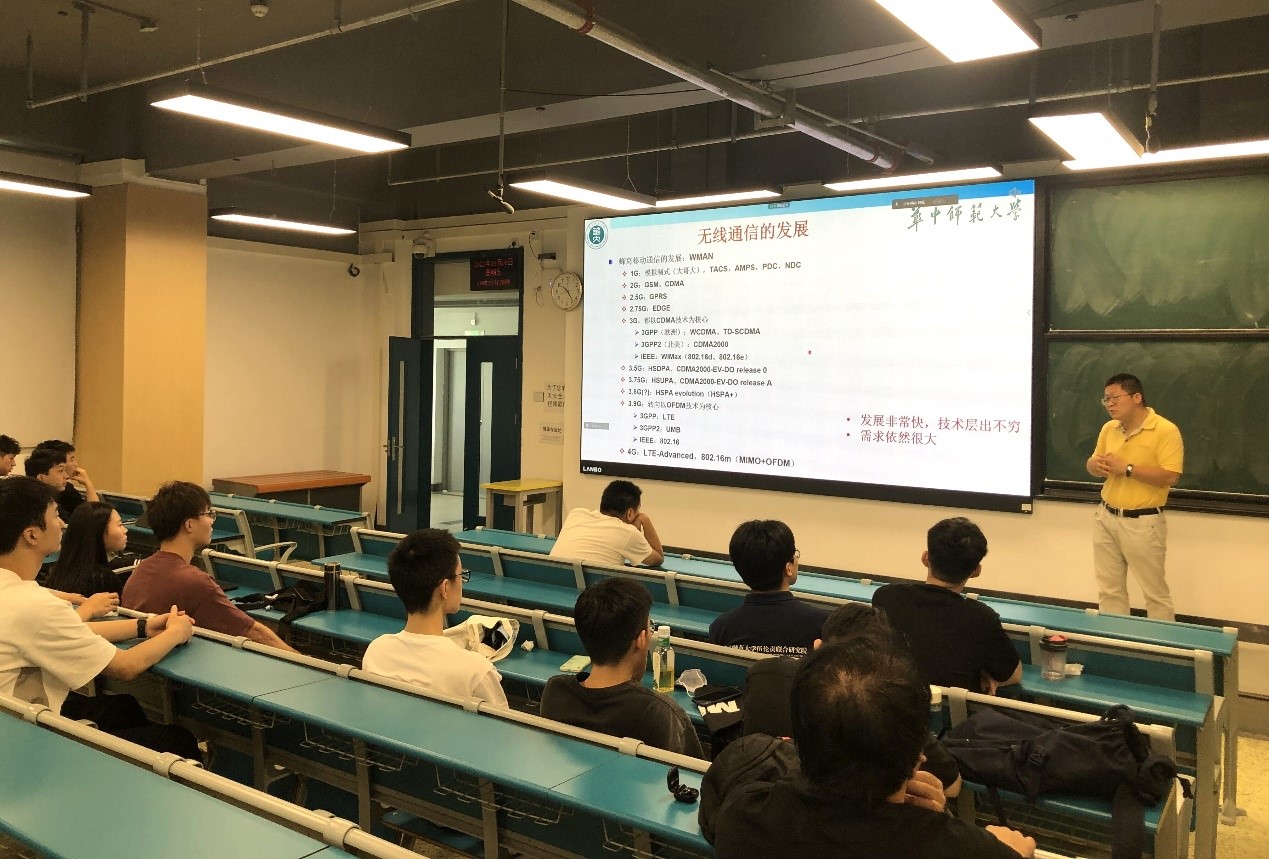
Dr. Zhongnian Li conducted a lecture entitled “5G, 6G and Future Telecommunication”. He introduced the history of mobile communication network technology, compared the technical differences between each generation, and showed the students the characteristics, requirements, key technologies, and related knowledge of 5G technology in combination with the technical characteristics of the three major operators. In the end, he also introduced the future development plan of 6G technology and its indicative technical features, which stimulated the students’ strong interests in 6G technology.
Ⅲ. Comprehensive literacy, etiquette and mental health
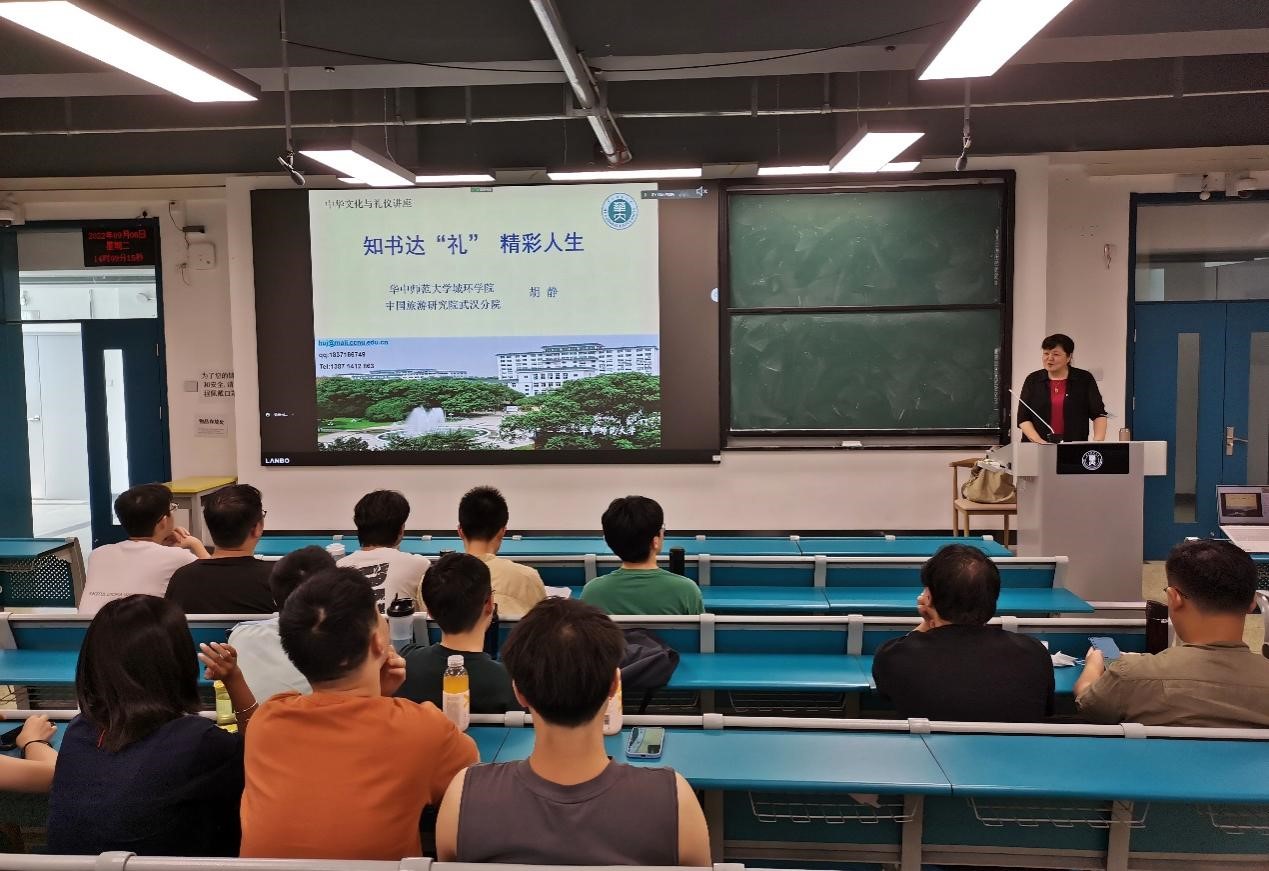
Prof. Jing Hu, Dean of Wuhan Branch of China Tourism Academy, made a lecture on etiquette with the theme of “Be a well-mannered person to live a wonderful life”. She emphasized the importance of etiquette in combination with traditional Chinese culture, and introduced specific etiquette knowledge with examples of language, dressing and behavior. Based on her own experience and thinking, she also expected students to improve their etiquette and be a courteous person.
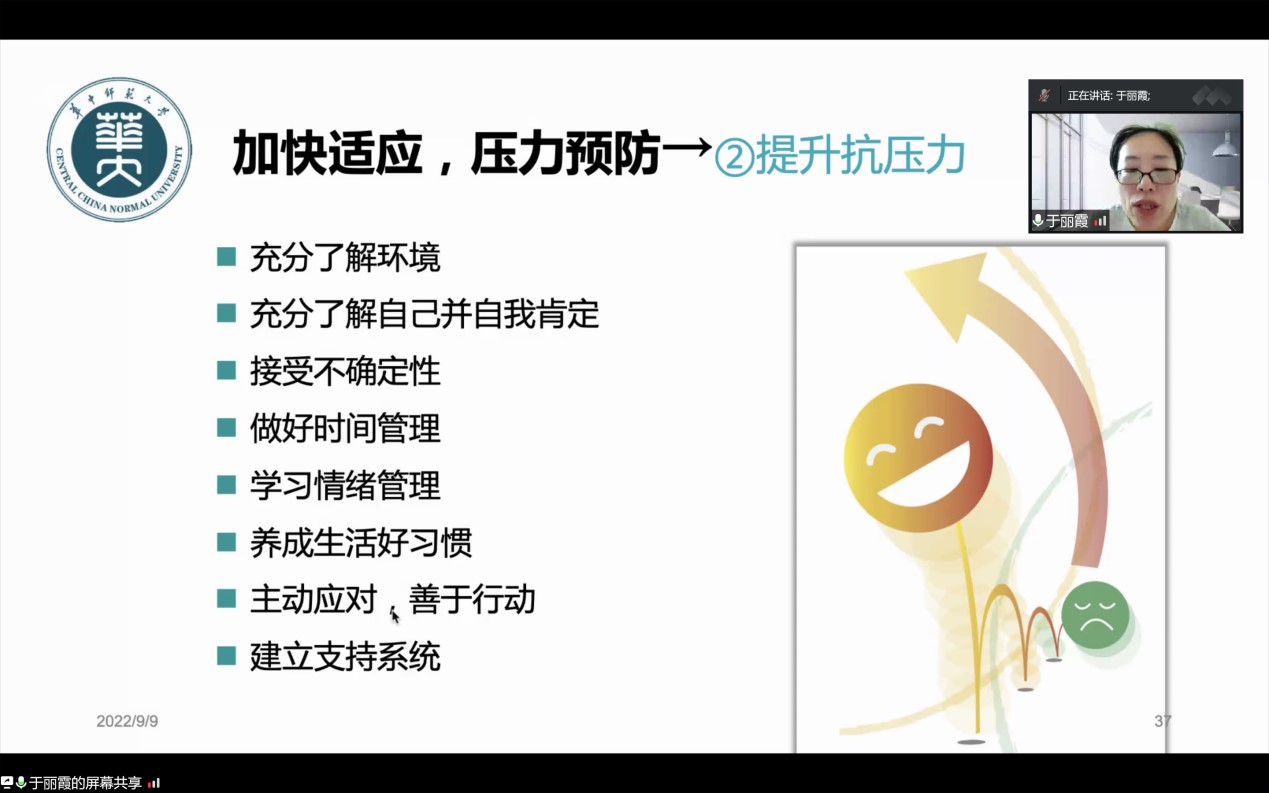
Ms. Lixia Yu from Mental Health Center of CCNU gave her lecture from three aspects, including students’ interpersonal relationships, mental health issues and psychological guidance. During the lecture, she stated the impact of important interpersonal relationships such as parent-child relationship and intimate relationship; listed the difficulties and frustrations that students might encounter in study and life; provided some proper ways for students to relieve themselves from stress.
The orientation week is aimed to lay a solid foundation for JI students to plan their two-year postgraduate study and help them start a new journey of self-improvement.
(Translated by Jingyi Li and Fan Luo, edited by Shuo Liu, reviewed by Helin Wu)
